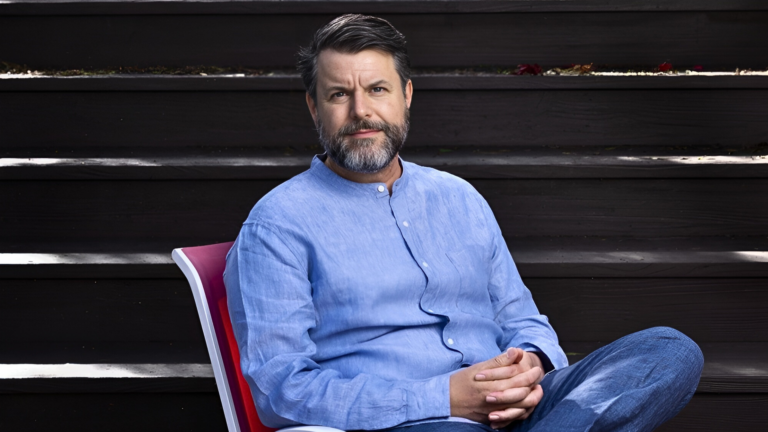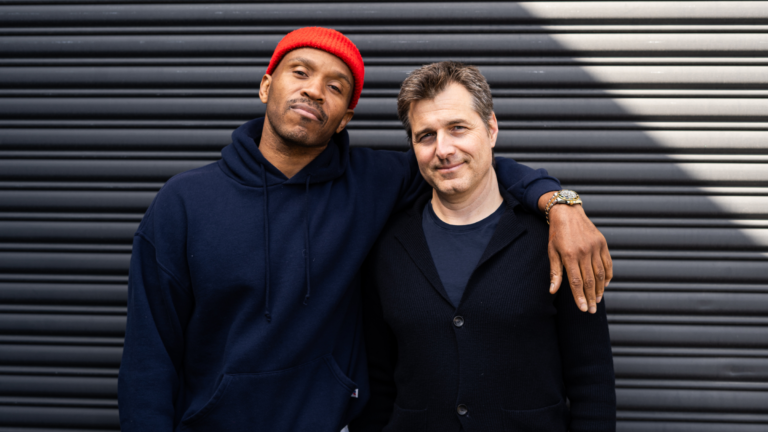This week’s conversation is with Trent Dilfer, a 14 year NFL veteran and Super Bowl Champion.
Trent played for five teams during his career, including the Tampa Bay Buccaneers, Baltimore Ravens, Seattle Seahawks, Cleveland Browns, and San Francisco 49ers.
He led the Ravens to a 34-7 victory over the Giants in Super Bowl XXXV.
Trent has now made it his mission in life to “give back” and has become a positive role model, coach and mentor for upcoming High School Quarterbacks through Elite 11 where he’s had the opportunity to pass on his knowledge and wisdom of the quarterbacking position to the next generation of future College and NFL Players.
Trent and I met at Elite 11 and that’s where I got to learn about how special a human being he is.
In this conversation we discuss Trent’s journey to the NFL, what he’s learned about himself along the way, and how that ultimately led him to coaching high school football – where he’s currently the head football coach at the Lipscomb Academy in Nashville, Tennessee.
And while Trent is well known for his work on the football field, this conversation is really about who Trent is as a man off it.
“The greatest thing I’ve learned in 48 years is I know who I am. I can admit all the garbage that I have and there’s still tons of it, but at least I’ve recognized it.”
In This Episode:
How did having two dads growing up shape him?
“My parents got divorced when I was two. My mom remarried when I was five to my stepdad, who is still a huge part of my life. I feel like I had the greatest stepdad in the history of stepdads, but my dad, my true father was still really involved. Now, he passed 10 years ago, but up until his passing, I mean, he was my soulful, sensitive, non-athletic, academic thinker influence. I think a lot of my roots of thinking through things and being sensitive. I’m a crier, you know this. My kids make fun of me all the time. I’ll probably cry in this interview. I cry all the time. He was the one that gave me the freedom to express my emotion.”
What is he searching for?
“I’m still searching for what my 98-mile per hour heater is, with my gifts. But I think also, I can also appreciate the journey that I may not know that for a long time. I think I’m closer to finding it than I have in a long time. In terms of purpose, peace, I’m not searching for anything. I’ve never been more secure in who I am, whose I am, my relationship with God, the grace, mercy bestowed upon me. I have zero, literally zero things I’m looking out in the clouds for there. I have total comfort and peace and understanding of that.”
His rebellious stage
“I really started rebelling late high school. Rebellion to me was showing off. You know what I mean? I could show off on the basketball court. I was a really gifted basketball player. I could show off on the football field and I could also show off drinking beer and chasing girls and getting in fights or whatever it is. I think most of us that have rebelled to a certain amount of time, there’s a guilt associated with it because it’s so selfish. I mean, I look back at how selfish I was and people I hurt and even though it’s teenage hurt, you’re still hurting people. So that carried on to my second year in college. That’s when I kind of renewed my commitment to God. So I would say that, 16 to 20 was full of rebellion.”
Why he started coaching high school football
“I think I’m a high school football coach, and not an NFL football coach, because I recognized that if I went down that road, that NFL football, I’d be just like, all those NFL guys that I hate. It’s about them. It’s about ambition. It has nothing to do with the player. It has nothing to do with the wins and lots of the game, it’s about them. I would probably be that guy, but at 47 when outside of this, I needed to humble myself and say, “No, this isn’t about me.” I needed to do something where it’s about everybody else because all the issues I’ve had in my life is when it’s been about me. And going back to this rebellion stage, it was I rebelled because it drew attention to me and people go, “Oh wow, you’re a badass at that, man.” Now, looking back at it, it’s ridiculous, but that’s what it was.”
The highs and lows of his NFL playing career
“Heisman Trophy candidate, sixth pick of the draft, worst quarterback in football after two years, Pro Bowl after four, Super Bowl after six, journeymen but well paid journeyman, so really well paid at the back end of my career. Injuries derailed me, then I learned a lot, became a big time learner.”
His biggest regret
“I have great regret that I didn’t maximize my physical gifts. So what do you do when you have regrets about something? Okay, well, what’s the next thing that I can really maximize? Oh, I got a decent brain. Okay, so I’m going to maximize that. Oh, I’m a decent communicator? Well, I’m going to maximize that or I’m pretty gifted coaching. Well, then I’m going to maximize that. So you asked me what I’m searching for. I think I’m searching for not making the same mistake that I made with my physical abilities, but I want to make sure that if I recognize a gift that I have now that I can maximize it.”
The most challenging moment of his life
“Lost our son Trevin at five and a half years old. He was our second born, a virus ironically is we’re living through a pandemic that’s around a virus. It’s a common virus attacked his heart. It happens about one in a million people, basically destroyed his heart but then we caught it in time that a heart lung transplant would have saved him, but for 40 days, he was at Lucile Packard at Stanford and no heart that fit him came up, turned off life support after 40 days.”
How has he managed that pain?
“Retirement is not the answer for me. I got to take all this stuff and give it away and that’s what high school coaching has done for me is it’s repurposed my pain into a passion and that may change. I don’t know. If people ask me, “What are you going to do next?” I’m trying to find way to get a first down tomorrow or I’m trying to find a way to serve a kid tomorrow. I’m trying to find a way to help a kid get through a crisis tomorrow. I’m not even focused on what’s happening six months from now, but I think there’s a gift in that too being present. You’ve always talked about being present. I don’t know if I’ve ever been able to be present more than I have in the last 14 months.”
What are the most important life lessons he’d like to pass along to others?
“Self-awareness, vulnerability, transparency. I can apply those three things to every issue we have in our country right now and we’re better. Every relationship that I have. Every relationship I watch. Every kid I counsel. Every situation I’m in, those three things make it better.”
The “cottage cheese” theory:
“Do the work. It sucks. It hurts. It’s lonely. We talked about lonely at work all the time, but do the work on yourself. Don’t let other people tell you who you are. Don’t read a book and go, “Oh, I sound like that person.” Who are you really? I call it cottage cheese theory. Remember the old stuff when you lay out your old map, you laid in your bed and the stuff on your roof look like cottage cheese? It’s like the only time we’re real with ourselves. The moonlight’s hitting through it. The only thing you see is the cottage cheese. It’s the only time you’re really real with yourself.”
How did he develop self-awareness?
“I have dozens and dozens of journal books as we just made this move that I found. It was really cool by the way. I’d encourage people to go back if you’re a journaler and go back and reread stuff. I got a Bible right up here that I used the front pages of as a journal. I’ll go through and read stuff from the early 2000s that I wrote in there journaling. Now, I have to speak, I have to talk, so I have to be with a mentor, I have to be with a friend, I have to do stuff like this. I’ve done a bunch of FCA speaking gigs this year where I share this story and I just give my junk and it’s therapeutic for me.”
The “coach’s hat” game that helped him become a better father to his three daughters:
“When you need dad, you get dad, when you need coaching and a coach, let’s call a coach’s hat. And you literally asked me to put on the coach’s hat, otherwise, I’m dad. So that’s the rule, I am dad until you ask me to put on the coach’s hat and when you ask for the coach, I will physically put on the coach’s hat, and now I’m coach. Now, we got to have different boundaries. I can rip your tail. I can tell you’re being a whiny little brat. I can tell you you’re a bad teammate and you got to receive it that way.”
What are his crown jewels?
“I think I’ve become very good at taking complicated things and communicate them in simple ways. I can take something that seems very esoteric up in the clouds, I can reformulate it, package it, distill it, and then give it to you to where you can apply it. I think that’s probably my greatest skill as a communicator, but to do that, I got to take it when it’s up here. And I spent tons of time taking a big issue and wrestling with it and listening to other people speak into it, challenging it, being a contrarian, betting it like I do a lot of work before you ever get it as the consumer.”


